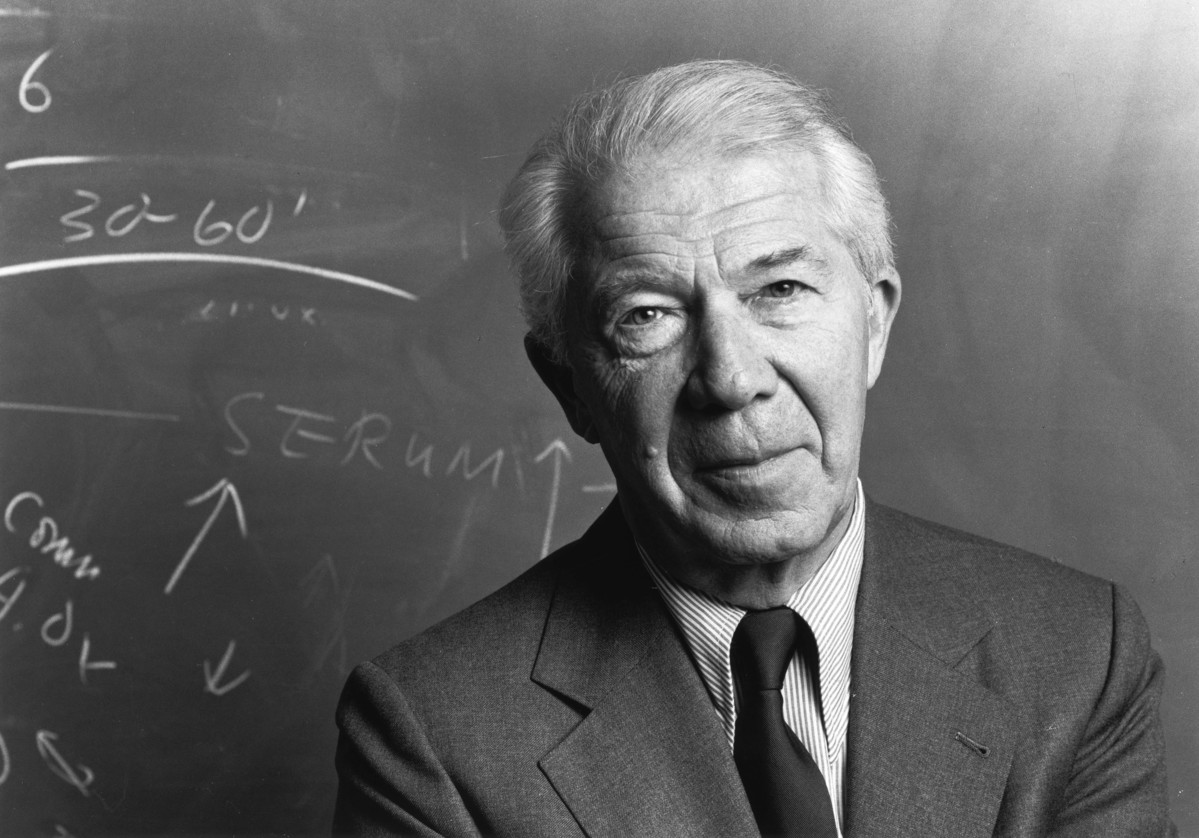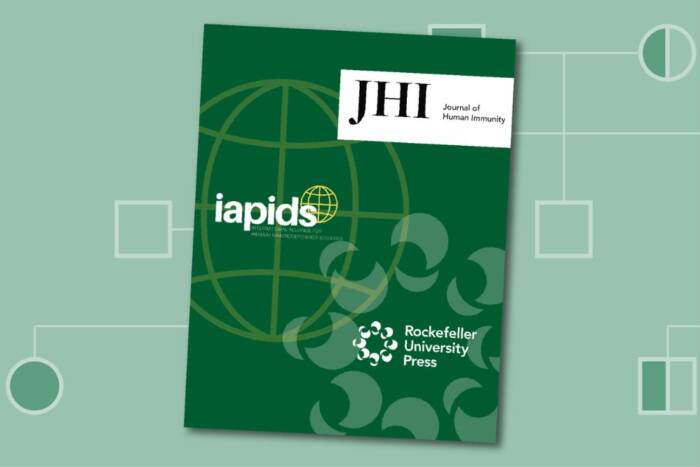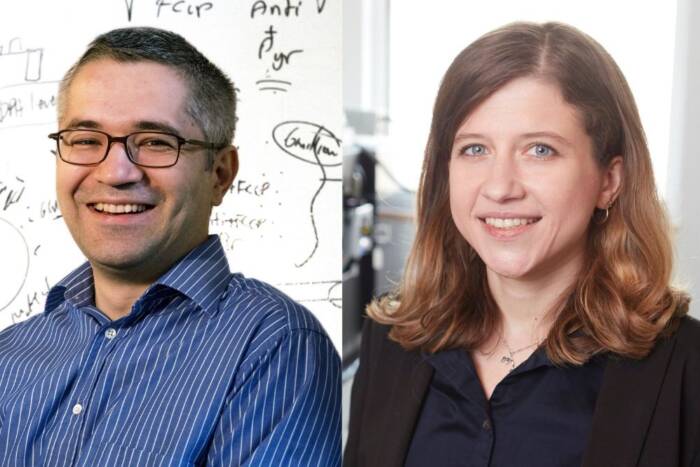Nobel laureate Christian de Duve dies at 95

Christian de Duve, Andrew W. Mellon Professor emeritus at The Rockefeller University and one of the founding fathers of the modern field of cell biology, died Saturday, May 4, at the age of 95. He chose to die by an act of euthanasia, surrounded by all four of his children.
de Duve was a cell biologist whose research centered on the separation and characterization of the organelles of living cells. He is best known for his discovery of lysosomes, subcellular particles that function in many ways as the digestive system of the cell. He was awarded the Nobel Prize in Physiology or Medicine in 1974, jointly with Rockefeller’s Albert Claude and George E. Palade, for “discoveries concerning the structural and functional organization of the cell.”
de Duve discovered lysosomes in 1955, while working at the Catholic University of Louvain in Belgium, using the cell fractionation technique of centrifugation for separating cell parts that had been developed by Claude at Rockefeller. Shortly following the discovery, de Duve and Alex B. Novikoff of the Albert Einstein College of Medicine identified lysosomes visually when they obtained the first electron micrographs of cell fractions containing partially purified lysosomes. Among the achievements of his laboratory was the discovery of peroxisomes, organelles which are involved, among other functions, in the metabolism of fats.
de Duve and his colleagues made significant contributions to the development of techniques and instrumentation for the study of cell biology. Work in his laboratories in New York and Belgium were devoted to the application of basic research in cell biology to problems of medicine and therapeutics, including atherosclerosis, cancer, immune defense mechanisms, genetic diseases, parasitic diseases, arthritis, and chemotherapy. In each area, the lysosome proved to be of special value. In his later years, his investigations shifted from biochemistry and cell biology to the mechanisms whereby life arose on our planet. He was particularly interested in the manner in which chemistry and natural selection joined to produce the first living cells and in the significance of those events as they relate to the place of life in the universe, including the possibility of extraterrestrial life.
de Duve was the author of more than a dozen books, including A Guided Tour of the Living Cell; Blueprint for a Cell; Vital Dust: Life as a Cosmic Imperative; Life Evolving: Molecules, Mind, and Meaning; Singularities: Landmarks on the Pathways of Life; and his final book, Genetics of Original Sin: The Impact of Natural Selection on the Future of Humanity.
de Duve, a Belgian citizen, was born in Thames-Ditton, England, on October 2, 1917. He received a degree of doctor of medicine, surgery, and obstetrics from the University of Louvain in 1941 and continued his research there, earning the equivalent of a Ph.D. in 1945 and a master of science degree in chemistry in 1946. He then worked at the Nobel Institute in Stockholm with Hugo Theorell and at Washington University in St. Louis, Missouri, with Earl Sutherland, under Carl and Gerty Cori, before returning to the University of Louvain Medical School in 1951 as professor of biochemistry.
de Duve was appointed professor at Rockefeller in 1962, continuing a part-time appointment at the University of Louvain. He was named Andrew W. Mellon Professor at Rockefeller in 1974, and he became professor emeritus in 1988.
In 1975 de Duve created the International Institute of Cellular and Molecular Pathology, in Brussels. In 1985 he became professor emeritus at the University of Louvain, while remaining president of the ICP. In 1991, he retired as president of ICP and became a founding member of its board. On de Duve’s 80th birthday in 1997, the ICP was renamed the Christian de Duve Institute.
In addition to the Nobel Prize, de Duve was the recipient of several awards in Belgium as well as the Special Award of Merit from the Gairdner Foundation in Canada (1967); the Dr. H. P. Heineken Prize (1973) from the Royal Netherlands Academy of Arts and Sciences; the Theobald Smith Award, sponsored by the Albany Medical College (1981); the Harden Medal of the Biochemical Society, Great Britain (1978); the Jimenez Diaz Award, Spain (1985); the Innovators of Biochemistry Award, Medical College of Virginia (1986); and the E.B. Wilson Award of the American Society for Cell Biology.
He received honorary degrees from 18 universities around the world, and he was a member of numerous scientific and academic societies, including the U.S. National Academy of Sciences; the Royal Academies of Medicine and of the Royal Academy of Sciences, Arts, and Literature of Belgium; the French National Academy of Medicine; the American Academy of Arts and Sciences; the Academy of Sciences of Paris; Deutsche Akademie der Naturforscher Leopoldina; the Royal Society (London); and the American Philosophical Society.


